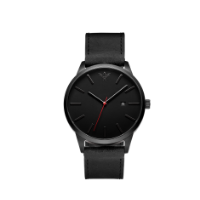THE LOOP
Opportunity
"If opportunity doesn't knock, build a door."
-Milton Berle
Last week we attended the Outdoor Retailer Show and while I was amazed at all of the products that were there to view, I was equally amazed at how many seemed to be reiterations of the same thing over and over again. Around every corner there seemed to be another SUP or kayak or hammock.
I love that although we have a phenomenal core product with our patented, high quality ratcheting belt, it wasn't enough for us. We built a new door and blew right through it by driving the concept into an area that nobody had even thought of yet with our Survival Belt. Having people constantly come into the booth, check out the belt and tell us it was the coolest thing they've seen so far was a source of great pride.
Hold on tight because unless I miss my guess, we're going to be building a lot of new doors in the future as we continue to innovate and grow - and we all get a front row seat to the show!
Courage
I've written before about one of my favorite speakers/authors, Brene Brown. I was listening to a podcast she was on recently, where she was talking about how one of her favorite words is "courage". Not so much the modern meaning of the word, with undertones of bravery and heroism, but more so for its earliest, original meaning.
The root-word of "courage" is "cor-", which is the Latin word for heart, and the original meaning of courage was "to speak one's mind by telling all of one's heart."
As Brene continued, she noted how heroism is certainly needed, but there seems to be less and less appreciation for the original meaning of the word. "Heroics is often about putting our life on the line. Courage is about putting our vulnerability on the line. In today's world, that's pretty extraordinary," she said.
Over the last year especially, I've learned how critical this "vulnerability" part is for successful personal relationships. Too often, we're conditioned to build up walls to keep the vulnerability out, and, most importantly, to keep our vulnerability from others. Vulnerability is giving someone else the opportunity to hurt you, after all.
In a funny twist of irony, the only way to get the most out of just about anything worthwhile, is to give in to the vulnerability...and now it all makes sense: the courage (to speak one's mind by telling one's heart) is courageous (the act of being brave; heroic) because the possibility for hurt is ever present, but the reward is so great.
Just Focus Do It! Friday, August 5, 2016
Happy Friday crusaders!
Congratulation on making it through the week!
The XXXI Olympiad, also known as the 2016 Rio Summer Olympics Games start in Rio de Janeiro, Brazil later today with the opening ceremony. Athletes from 206 nations will be competing in 28 sports categories watched by a global audience of billions. Team USA’s flag bearer Michael Phelps is one of many athletes I follow closely during Olympics. He is the most decorated Olympian of all time, with a total of 22 medals competing in his fifth consecutive summer games. He is a proponent on dreaming big and maintaining a consistent focus on the biggest stage. There will always be obstacles, doubters, and mistakes throughout the process, but with hard work and dedication, there is not limit to what you can achieve.











